Welcome to Government College Departments
Higher Education Institute Society (HEIS)
Introduction
About: The primary objective of the HEIS, Government College Ropar is to impart and maintain the standards of education alongwith Information and communication Technology (ICT). The society aims at developing the technical workforce in the related areas. The laboratories of HEIS are well equipped with requisite IT infrastructure which is managed by the society's self financed model since 2009.
VISION
To be an institute of academic excellence with total commitment to quality education in Computer science and related fields, with a holistic concern for better life, environment and society.
MISSION
- Empowering students with all the knowledge and guidance that they need to become worthy management professionals.
- Learning through Doing.
- Imparting value framework that is global yet national.
- Providing for holistic and value based development of students which ultimately enhances their employability.
- Developing social consciousness among students.
- To carve a niche for ourselves in the specialized field of commerce and management.
- Provide a nurturing and motivating environment to exploit the full potential of the students.
- Grooming youth to become a truly global personality well equipped to deal with the modern world and its challenges.
- Enable holistic development of personality with a humane and global outlook
Rules and regulations;
- The Computer Department offers three courses which include one undergraduate and two post graduate courses with semester system.
- Two house examinations (i.e. Mid Semester Test) are conducted in each semester. MST's are mandatory for students.
- Internal assessment for students based upon their day to day work, assignments, attendance and marks secured in the mid-semester tests.
- A student shall be eligible to appear in final semester examination only if he/she has minimum of 75% attendance in each subject. In case of shortage of attendance student will have to pay a fine of Rs. 5/- per lecture.
- Students willing to avail second chance of MST will have to pay a prescribed fee by the college. Students are requested to maintain the discipline & follow the code of conduct of the college.
Teaching Staff
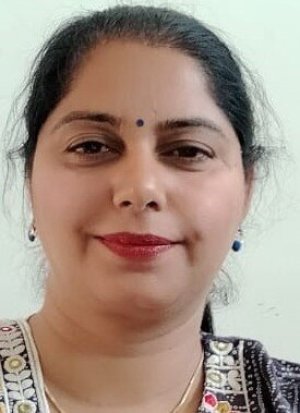
Name: Asst. Prof Jupinder Kaur
Designation: Asst. Prof.
Joining Date: 2013-09-19
Qualification: MCA, M.Tech, UGC(NET)
Area of Specialisation:UGC(NET)
Email: [email protected]
Mobile: 9356093670
Vidwan ID : 382624
Appointment Type : Contract Teacher
Books :
| Department | Name of Authors/Editor | Title of Book | Publisher | ISSN /ISBN no |
| Computer Deptt.(HEIS) | Puneet Wadhwan, Rimpy Rani, Jupinder Kaur | Fundamental of Information Technology | Twenty first Century Publications | 978-93-80144-10-8 |
Edited Chapters in books :
| Department | Name of Authors/Editor | Title of Book | Publisher | ISSN /ISBN no |
| Computer Deptt.(HEIS) | Puneet Wadhwan, Rimpy Rani, Jupinder Kaur | Fundamental of Information Technology | Twenty first Century Publications | 978-93-80144-10-8 |
Papers presented in conference/Seminars :
| Sr. No | Topic | Venue | Date
|
| 1. | 3rd Vishav Punjabi Bhasha Vikas Conference(one day), Govt. College Ropar | Govt. College Ropar | 20 January 2018 |
| 2. | UGC Sponsored National Conference on Cloud Computing & Network Security (NCCCNS-2017) | Shri Guru Teg Bahadur Khalsa College, Shri Anandpur Sahib | 25 March 2017 |
| 3. | 2ND National Conference on Managing Business development in globalized world: Strategies for excellence | IET Bhaddal Ropar | 26-27,March,2011 |
| 4. | National Seminar on Advances in computer application | IET Bhaddal Ropar | 28-29,April,2011 |
| 5. | International Conference on Technological and management advancements : Issues and challenges | RIMT Mandi Gobindgarh | 10,Oct, 2011 |
| 6. | National Seminar on Emerging Trends in computer science and information technology Adhoc networks | IET Bhaddal Ropar | 1-2,Nov,2011 |
| 7. | National Seminar on Technological advancement in communication Engineering | IET Bhaddal Ropar | 2,Nov,2011 |
Participation in conferences :
International (1) National (4)
Participation in Workshops :
| 1. | FDP on Mission 10X | IET Bhaddal Ropar | 13-17,june,2011 |
| 2. | Workshop on High Impact teaching skills | IET Bhaddal Ropar | 13-14,june,2011 |
| 3. | Advanced Workshop on Effective Teaching Skills | IET Bhaddal Ropar | 06-07, jan,2012 |
Conducted/Attended FDP :
Research Methodology Techniques Analysis and Presentations
Warning: Undefined array key "Webinar" in /home/u399619714/domains/govtcollegeropar.org/public_html/modules/facultyProfileView.php on line 90
Deprecated: strlen(): Passing null to parameter #1 ($string) of type string is deprecated in /home/u399619714/domains/govtcollegeropar.org/public_html/modules/facultyProfileView.php on line 17
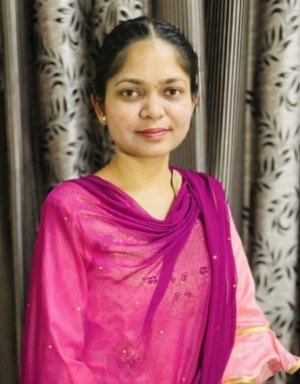
Name: Asst. Prof Dr. Annu Rani
Designation: Assistant Professor
Joining Date: 2023-02-27
Qualification: Ph.D, MCA, BCA, Qualified both UGC JRF and NET
Area of Specialisation:NLP, SIGN LANGUAGE, ALGORITHM DESIGN AND ANALYSIS, DBMS, COMPUTER NETWORK, OPERATING SYSTEM
Email: [email protected]
Mobile: 9478775953
Vidwan ID : 382695
Appointment Type : Contract Teacher
Research Papers :
A. Rani and L.Goyal, “ISL (Indian Sign Language) Dictionary using Synthetic Animations (Extension to Existing),” International Journal of Engineering Science 2021, pp. 4–5, 2021, ISSN: 2229-6913(Print), ISSN: 2320-0332(Online).
Papers presented in conference/Seminars :
Rani, A., Goyal, V., & Goyal, L. (2023). Assistive Technology for Home Comfort and Care. Computer Assistive Technologies for Physically and Cognitively Challenged Users, 73.
Participation in conferences :
1. A. Rani, V.Goyal and L.Goyal,Development of Data Set for Automatic News Telecast System for Deaf Using ISL Videos, Proceedings of Data Analytics and Management, Lecture Notes on Data Engineering and Communications Technologies.
2. Rani, A., Goyal, V., & Goyal, L. (2023). Synthetic Animations Based Dictionary for Indian Sign Language. In Advances in Information Communication Technology and Computing: Proceedings of AICTC 2022 (pp. 373-379). Singapore: Springer Nature Singapore.
3.Rani, A., Goyal, V., & Goyal, L. (2023). Advancing from Manual to Automatic Telecast of News for Deaf. In Advances in Information Communication Technology and Computing: Proceedings of AICTC 2022 (pp. 311-316). Singapore: Springer Nature Singapore.
Participation in Seminar :
Delivered lecture on ”Technical Writing Using Latex” on 5 April 2023, during workshop organized by Department of Computer Science, Punjabi University Patiala.
Participation in Workshops :
( Acted as Resource Person) Three-Days workshop on "Advanced Python Programming" (24-26 February, 2023) organized by Post Graduate Department of Computer Science sponsored by DBT Star Status-GOI in Sri Guru Teg Bahadur Khalsa College, Sri Anandpur Sahib Distt. Ropar.
Conducted/Attended FDP :
Five days national level faculty development programme on ”RESEARCH METHOD- OLOGY: TECHNIQUES, ANALYSIS, AND PRESENTATION” by Govt. College Ropar from 5 June to 9 June 2023.
• Faculty Development Programme (online live instructor-led) on Artificial Intelligence and Machine Learning conducted by National Institute of Electronics and Information Technology, Chandigarh from 22 June to 26 June, 2020
Attended Short Term Courses :
Basic ISL course Level 1 conducted by Indore Deaf Bilingual Academy from 24 August to 24 September 2020 (daily-online model). • Basic ISL course Level 2 conducted by Indore Deaf Bilingual Academy from 9 October to 12 November 2020 (daily-online model). • Basic ISL course Level 3 conducted by Indore Deaf Bilingual Academy from 15 January to 15 February 2021 (daily-online model).
Warning: Undefined array key "Webinar" in /home/u399619714/domains/govtcollegeropar.org/public_html/modules/facultyProfileView.php on line 90
Deprecated: strlen(): Passing null to parameter #1 ($string) of type string is deprecated in /home/u399619714/domains/govtcollegeropar.org/public_html/modules/facultyProfileView.php on line 17
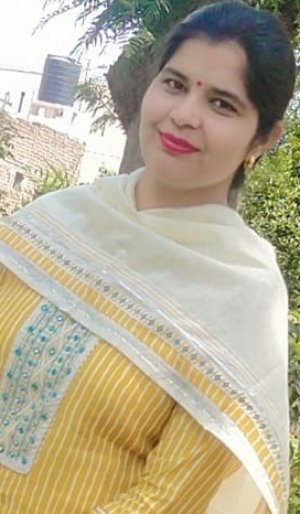
Name: MRS. NAVJOT KAUR
Designation: Assistant Professor
Joining Date: 2015-07-25
Qualification: BCA ,MCA
Area of Specialisation:NA
Email: [email protected]
Mobile: 8872496757
Vidwan ID : 382583
Appointment Type : Contract Teacher
Any Other Publication :
Current trends in IT (2018-2019) S.G.T.B Khalsa College sssssri anadpur sahib
Conducted/Attended FDP :
Research methodology techniques analysis and presentation
Warning: Undefined array key "Webinar" in /home/u399619714/domains/govtcollegeropar.org/public_html/modules/facultyProfileView.php on line 90
Deprecated: strlen(): Passing null to parameter #1 ($string) of type string is deprecated in /home/u399619714/domains/govtcollegeropar.org/public_html/modules/facultyProfileView.php on line 17
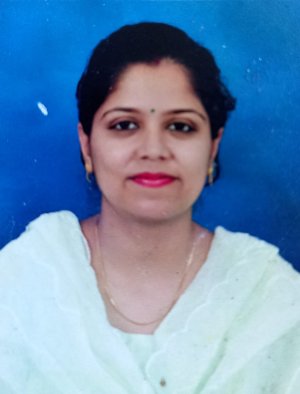
Name: Asst Prof. Mandip Kaur
Designation: Assistant Professor
Joining Date: 2015-07-23
Qualification: BCA, MCA
Area of Specialisation:Assistant Professor
Email: [email protected]
Mobile: 8872573123
Vidwan ID : 382569
Appointment Type : Contract Teacher
Papers presented in conference/Seminars :
- Paper presented oon"nn cloud computing at Shri Guru teg Bahadur Khalsa College Anandpur SahibSahib
Any Other Publication :
- Paper published in Vidyasagar Patrika under the title cloud computing and its applications
Participation in conferences :
- International conference on recent development in mathematical science artificial intelligence and machine learning on March 14 15 2023 by Shri Guru teg Bahadur Khalsa College Anandpur Sahib Undertaker rule of AI in healthcare colon review
Participation in Seminar :
1. National seminar on advance in mathematical and information sciencescience on February day 2019
2. 5 days National seminar on research methodology techniques analysis and presentation from 4 to 9 2023 at Government College Ropar
Conducted/Attended FDP :
- One week fdp on advance research methodology on data analytics organised by Digvijay nath post graduate College Gorakhpur UP from 22-28 2023
- One day fdp on use of ICT tools current perspective on 26 June 2023
Conducted/Attended MOOC :
NANA
Warning: Undefined array key "Webinar" in /home/u399619714/domains/govtcollegeropar.org/public_html/modules/facultyProfileView.php on line 90
Deprecated: strlen(): Passing null to parameter #1 ($string) of type string is deprecated in /home/u399619714/domains/govtcollegeropar.org/public_html/modules/facultyProfileView.php on line 17
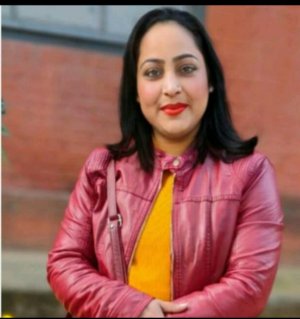
Name: Assistant Manpreet Kaur
Designation: Assistant Professor
Joining Date: 2010-07-20
Qualification: M.C.A.
Area of Specialisation:NA
Email: [email protected]
Mobile: 7087800330
Vidwan ID : 382597
Appointment Type : Contract Teacher
Research Papers :
- Impact No.5.5,ISSN-2277-5730,Ajanta-Sub-Teaching Infrastructure.
- Impact No.5.5,ISSN-2277-5730,Ajanta-Sub-Computer and Official Work.
- Impact No.5.5,ISSN-2277-5730,Ajanta-Sub-Innovantion in Computer Science.
- Impact No.5.5,ISSN-2277-5730,Ajanta-Sub-Digital Litracy Special Needs for Children.
- ISBN-978-93-52050-22-2 , Sub- Research Methodology.
- ISBN-978-93-52050-22-2, Sub-Operating System.
Participation in Workshops :
- Ethical Infotech , Sri Gugu Teg Bahadur Khalsa College,Sri Anand Pur Sahib
Warning: Undefined array key "Webinar" in /home/u399619714/domains/govtcollegeropar.org/public_html/modules/facultyProfileView.php on line 90
Deprecated: strlen(): Passing null to parameter #1 ($string) of type string is deprecated in /home/u399619714/domains/govtcollegeropar.org/public_html/modules/facultyProfileView.php on line 17
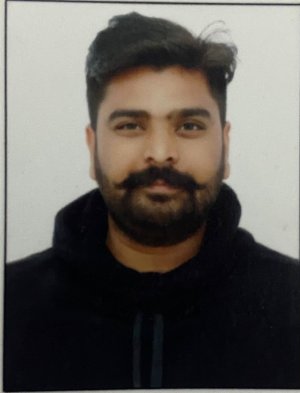
Name: Assistant Gurdeep Singh
Designation: Assistant Professor
Joining Date: 2023-02-27
Qualification: BCA, MCA, UGC NET (JRF), GATE, PURSUING Ph.D
Area of Specialisation:Natural Language Processing
Email: [email protected]
Mobile: 8427830361
Vidwan ID : 382780
Appointment Type :
Papers presented in conference/Seminars :
1. Singh, G., Goyal, V., Goyal, L. (2022). Notation Systems Applied on Indian Sign Language: A Review. In: Singh, P.K., Singh, Y., Kolekar, M.H., Kar, A.K., Gonçalves, P.J.S. (eds) Recent Innovations in Computing.Lecture Notes in Electrical Engineering, vol 832. Springer, Singapore. https://doi.org/10.1007/978-981-16-8248-3-6 2. Singh, G., Goyal, V. Goyal, L. Comparative Analysis of Translation Systems from Indian Languages to Indian Sign Language. SN COMPUT. SCI. 3, 289 (2022). https://doi.org/10.1007/s42979-022-01180-3 3. Singh, G. (2021). A prototype Punjabi text to Sign Language Automatic Translator. In An International Journal of Engineering Sciences (Vol. 34). http://ijoes.vidyapublications.com 4. Singh, G., Goyal, V., Goyal, L. (2023). Punjabi Indian Sign Language Dictionary Using Synthetic Animation. In: Tiwari, S., Trivedi, M.C., Kolhe, M.L., Singh, B.K. (eds) Advances in Data and Information Sciences. Lecture Notes in Networks and Systems, vol 522. Springer, Singapore. https://doi.org/10.1007/978-981-19-5292-0_248
Deprecated: strlen(): Passing null to parameter #1 ($string) of type string is deprecated in /home/u399619714/domains/govtcollegeropar.org/public_html/modules/facultyProfileView.php on line 17
Conducted/Attended FDP :
FIVE DAYS NATIONAL LEVEL WORKSHOP “RESEARCH METHODOLOGY: TECHNIQUES, ANALYSIS, AND PRESENTATION” from 4 June to 9 June 2023.
Attended Short Term Courses :
Basic Indian Sign Language Online Course from 1 October to 3 November 2020 (Indore Deaf Bilingual Acadamy run By Mook Badhir Sangathan, Indore (M.P))
Warning: Undefined array key "Webinar" in /home/u399619714/domains/govtcollegeropar.org/public_html/modules/facultyProfileView.php on line 90
Deprecated: strlen(): Passing null to parameter #1 ($string) of type string is deprecated in /home/u399619714/domains/govtcollegeropar.org/public_html/modules/facultyProfileView.php on line 17
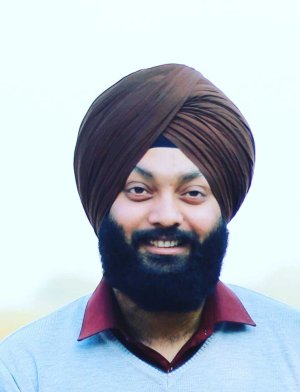
Name: Assistant Manpreet Singh
Designation: Assistant Professor
Joining Date: 2018-03-01
Qualification: MSc. IT, MCA
Area of Specialisation:
Email: [email protected]
Mobile: 9464166915
Vidwan ID : 382569
Appointment Type :
Deprecated: strlen(): Passing null to parameter #1 ($string) of type string is deprecated in /home/u399619714/domains/govtcollegeropar.org/public_html/modules/facultyProfileView.php on line 17
Warning: Undefined array key "Webinar" in /home/u399619714/domains/govtcollegeropar.org/public_html/modules/facultyProfileView.php on line 90
Deprecated: strlen(): Passing null to parameter #1 ($string) of type string is deprecated in /home/u399619714/domains/govtcollegeropar.org/public_html/modules/facultyProfileView.php on line 17
Lesson Plans
2022-2023Lesson plansBCAB.C.A. SEM 1 AND 2.pdfB.C.A. SEM 3 AND 4.pdf B.C.A. SEM 5 AND 6.pdf M.SC ITMSC.IT(2022-23).pdfPGDCApgdca(2022-23).pdfSyllabus Plan B.A. II (Sem 4) 2022-23 (1).docx Syllabus Plan B.A. III (Sem 6) 2022-23 (2).docx |
2021-2022Lesson plansBCABCA-1 2021-22.pdfBCA-2 2021-22.pdf BCA-3 2021-22.pdf M.SC ITPGDCApgdca session 2021-22 LP.pdf |
2020-2021Lesson plansBCABCA SEM 1,2(2020-21).pdfBCA SEM 3,4 (2020-21) (1).pdf BCA SEM 3,4 (2020-21).pdf M.SC ITMsc(2020-21).pdfPGDCApgdca(2020-21).pdf |
2019-2020Lesson plansBCAB.C.A 1. 2019-2020.pdfB.C.A 2 2019-2020.pdf B.C.A 3 2019-2020.pdf M.SC ITMSC 2019-2020.pdfPGDCAPGDCA 2019-2020.pdf |
2018-2019Lesson plansBCABca 1sem_Bca 2 sem_merged.pdfBca 3rd & 4 sem_merged.pdf Bca 5th & 6 sem_merged (1).pdf M.SC ITMSc IT 2018-19.pdfPGDCAPGDCA 1st sem (1).pdf |
Courses Offered
- Bachelor of Computer Application (B.C.A)
- Post Graduate Diploma of Computer Application (PGDCA)
- MSc. (IT) Lateral Entry in 2nd Yr.
SUBJECT OUTCOMES:-
B.C.A Sem-I
1) General English
2) Punjabi (Compulsory)
3) Fundamental of Information Technology
4) Programming fundamental using C
5) Software Lab- I(FIT)
6) Software Lab-II(C)
Course Title: FIT:- Fundamental of information Technology
Course Outcomes
Students who are Studying this Subject will be able to define:
- Computer Information Technology, Vocabulary Concepts & Skills.
- Understand the concept of input and output Devices.
- Understand the various categories of memories.
- Understand the evolution of internet, networking Topologies of network.
- Understand the Mobile Technologies, UG’s Generations, Blue tooth etc.
Subject:- English Communication Skills
Course Outcome
- To Learn how to solve Comprehensions.
- To Learn, how to be perfect in classes and phrases
- To Learn, how to be perfect in Tenses.
- To Learn, how to do translate from Punjabi to English.
- To Learn how to write essays and letters.
ਲਾਜਮੀ ਪੰਜਾਬੀ
ਬੀ.ਸੀ.ਏ (ਸਮੈਸਟਰ ਪਹਿਲਾਂ) ਵਿਸ਼ਾ: ਪੰਜਾਬੀ
- ਵਿਦਿਆਰਥੀਆਂ ਨੂੰ ਨਾਵਲ ਬਾਰੇ ਜਾਣਕਾਰੀ ਦੇਣਾ।
- ਨਾਵਲ ਦੀ ਪਰਿਭਾਸ਼ਾ ਦਿੰਦੇ ਹੋਏ ਉਸ ਸਬੰਧੀ ਵਿਸ਼ਾ, ਸਾਰ, ਪਾਤਰ-ਚਿਤਰਨ ਲਿਖਣ ਦੀ ਜਾਂਚ ਸਿਖਾਉਣੀ।
- ਭਾਸ਼ਾ ਦੇ ਮੁੱਢਲੇ ਸਿਧਾਤਾਂ ਨੂੰ ਸਮਝਾਉਣਾ।
- ਵਿਦਿਆਰਥੀਆਂ ਨੂੰ ਲੇਖ ਲਿਖਣ ਦੀ ਜਾਂਚ ਸਿਖਾਉਣੀ।
- ਧੁਨੀ ਵਿਉਂਤ ਅਤੇ ਅਤੇ ਸ਼ਬਦ ਸ਼੍ਰੇਣੀਆਂ ਸਬੰਧੀ ਵਿਸਤਾਰਪੂਰਵਕ ਸਮਝਾਉਣਾ।
Subject :-Programming in C
Course Outcomes
- To learn how to use variables, constants.
- To understand the concept of data types.
- To understand the concept of one dimension, two dimension arrays.
- To clear the concept of file handling.
BCA-SEM-II
- General English-II
- Punjabi
- Digital Electronics
- Data structure
- Basic Math
- Software Lab- III
Subject:- Data Structure
Course Outcomes
- To learn the to understand the concept of types of Data structure
- To understand the concept of Stack
- To understand the concept of Queue
- To understand the concept of Tress.
- To understand the concept of Searching and sorting.
ਵਿਸ਼ਾ: ਪੰਜਾਬੀ
Course Outcome
Subject:- English Communication Skills
Course Outcomes
- Students can learn how to solve Comprehension.
- Students can learn how to write
- Students can learn about tenses.
- Students can learn about
Subject:- DISCRETE MATHEMATICS
Subject Outcome:-
To express express root of negative numbers in terms of i.
To express imaginary numbers as a+ ib.
To operate different types of operations on complex numbers eg. addition, multiplication, division. Algebra of complex numbers.
To find square roots of complex numbers, cube root of unity.
To solve quadratic equations with real and complex coefficients.
Relations between roots and coefficients , nature of roots,
equation reducible to quadratic equations.
To understand Cartesian Coordinate system.
Different formulae regarding cartesian system.
To use condition for collinearities of three points in a plane
To calculate distance between two points.
To locate a point by dividing a line segment.
To define inclination of a line and determine line's slope
To solve for slope of parallel lines & perpendicular lines
- To compute angle between two lines
Determine equation of a straight line by different methods.
To determine equation of parallel and perpendicular lines.
To calculate distance from a point to a line.
To define and explain the concept of circle and its different forms,
To identify different parts and to explain the relation between the radius and diameter of a circle.
Subject:- Digital Electronics
Course Outcomes
1) Students will learn about Digital Gates
2) Students will learn about Truth table.
3) Students will learn about Boolean Alzebra.
4) Students will learn about Analog Circuits.
BCA SEM - 3rd
- Fundamentals of DataBase Management System
- Object Oriented Programming using C++(OOPS)
- Discreate Mathematics
- Computer system Organization and Architecture
- English Communication Skill- I
- Punjabi
- Software Lab V (OOPS)
- Software Lab VI (DBMS)
Subject:- Computer system Organization and Architecture
Course Outcome:-
- To understand the concept of memory.
- To understand the concept of pipe lining.
- To understand the concept of RISC and CISC.
- To understand the concept of 8086 processer.
Subject:- Fundamental Of DataBase Management System
Course Outcome:-
- In this students learn about how to gather the different type of Data of different person.
- Student will learn different keys different type of Normalization Techniques.
- Students will learn about Data Binding.
- Students will learn about Macrocs, Tables and Forms.
Subject:- Object Oriented Programming using C++
Course Outcomes
- To learn how to design C++ classis for code reuse.
- To understand the concept of Data Abstraction and encapsulation.
- To learn how to enablement copy constructor and class member function.
- To learn the syntax and semantics of C++ Programming language
- How to write in line function for efficiency.
Subject :-- Discrete Mathematics
Subject Outcome:-
To understand the concept of sets and its various types.
To find cardinality and principle of mathematical induction.
Principle of Inclusion and exclusion.
To simplify and evaluate basic logic statements including compound statements, implications, inverse, converse and contrapositive using truth tables and properties of logic.
To express a logic sentence in terms of predicators, quantifiers and logical connectives.
Apply operations of sets and use Venn diagrams to solve applied problems.
To determine the domain and range of discrete and non- discrete functions, graph functions, different types of functions.
To find inverse mappings, composite forms of function
To analyze the growth of elementary functions and to determine their Big-o value, Big- theta and Big-notation.
To understand the concept of relations, equivalence, relations, partial order relations and partitions.
matrix representation and vice –versa of relations.
To determine graph and all the types of graphs.
To determine if a given graph is simple or a multigraph, directed or undirected, cyclic or acyclic.
To determine connectivity of graph.
To Represent a graph using an adjacency list and an adjacency matrix and to apply graph theory to application problems.
Trees, Travelling salesman problem, to find shortest paths, djskatra’s algorithm , Hamiltonian graphs and circuits, Eulerian graphs and circuits.
Subject:- English Communication Skills
Course Outcomes
- Students can learn how to read and understand plays.
- Students can learn various parts of English Grammar.
- Students can learn how to translation from Punjabi to English.
- Students can learn how to write invitations.
- Students can learn how to write letters.
BCA SEM-4th
- English Communication Skills-II
- Computer Networks
- Managements Information System
- Computer Oriented Numerical and Statistical Methods
- Relational DBMS (ORACLE)
- Software Lab –VII (Maths)
- Software Lab –VIII (Oracle)
Subject: Relational DBMS(ORACLE)
Course Outcomes
- To understand the concept of keys.
- To understand the concept of removing duplicacy.
- To understand the concept about back and recovery.
- To understand the concept of 1Nf and 2Nf , 3Nf, 4Nf.
- To understand the concept of Data binding.
Subject:- Computer Networks
Course Outcomes
- To understand the concept of OSI reference Model, types of OSI model.
- To understand the working of OSI model.
- To understand Hardware and software and their type.
- To understand computer LAN,WAN,MAN.
- To understand the types of Topologies.
Subject:- Management Information System
Course Outcomes
- To understand how to manage the business, organization to achieve goals.
- All terms and conditions of organization to move our future in management or industries.
- To understand all about levels, goals and principles small, medium or large.
Subject:- English Communication Skills
Course Outcomes
1) Students will learn how to write long/Short answer.
2) Students will learn about social issuses.
3) Students will learn how to write CV, Resume and Emails.
4) Students can learn how to write invitations.
5) Students can learn how to write letters.
Subject:- COMPUTER ORIENTED NUMERICALS AND STATISTICAL METHODS
Subject Outcome:-
To find roots of polynomials by using mullen's method and Bairstow’s method.
To solve algebraic equations by using Gauss - Jordon method, LU- decomposition, Matrix Inverse - Gauss Seidel.
To perform numerical differentiation integration by using Trapezoidal Rule, Simpson's rule, Differential Equations by using Taylor’s method, Euler’s method, Runge-Kutta methods of order 2 and 4.
To understand concept of interpolation
To derive Newton's divided difference method of interpolation
To derive lagrangian method of interpolation.
To apply the interpolation methods to solve problems.
To find derivative and integrals of discrete functions using interpolation.
To find the parameters of a mathematical model that describes a set of data in a way that minimizes difference between the model and the data.
Linear, polynomial and exponential curve fitting.
BCA SEM-5th
- Web Designing using HTML & DHTML
- JAVA Programming
- SAD (System Analysis and Design)
- System Software
- Punjabi
- English Literary Skills -I
- Software Lab -X (HTML)
- Software Lab-IX (JAVA)
- Punjabi Compulsory (Mudla Gyan)
Subject:- Web designing using HTML & DHTML
Course Outcomes
- In this students learn about different kinds of Tags.
- They learn about Markups language.
- They learn about Image Preliminary (jpg, bmp, xmp).
- They learn about forms, tables, and
- They learn about creation of Web pages.
Subject:- English Literary Skills -I
Course Outcomes
- In this students will learn how to solve Grammer.
- They will learn about
- They will learn about Letters and Essay.
Subject:- System Software
Course Outcomes
- In this students learn about different kinds of Software like Application and system software.
- Student learn about linkers, assembles and loaders all the recourse that used to produce the software.
- They learn different of operating system.
Subject:- Java Programming
Subject outcome:-
- In this students learn about OOPS, Jav programming structure and its installation.
- They gain knowledge of Java programming constructor.
- They know about threads and input output in JAVA.
- To understand about AWT, component of JAVA and swing and writing codes snippets using them.
- To implement object oriented constructor such as various class hierarchy, interfaces and exception handling.
ਲਾਜਮੀ ਪੰਜਾਬੀ
ਬੀ.ਸੀ.ਏ (ਸਮੈਸਟਰ ਪੰਜਵਾਂ) ਮੁੱਢਲੀ ਪੰਜਾਬੀ
- ਮੁਹਾਵਰੇ, ਅਖਾਣ, ਲਿਖਵਾਉਣੇ
- ਲੇਖ ਲਿਖਣ ਦੀ ਜਾਂਚ ਸਿਖਾਉਣੀ।
- ਪੰਜਾਬੀ ਭਾਸ਼ਾ ਬਾਰੇ ਵਿਸਥਾਰਪੂਰਵਕ ਇਤਿਹਾਸ ਦੱਸਣਾ।
BCA SEM-6 th
- English Literary Skill-II
- E-Commerce
- Operating Systems
- Software Engineering
- Web Designing usind ASP.NET
- Software Lab XI (JAVA)
- Software Lab XII (ASP.NET)
Subject :- Web designing using ASP.NET
Course Outcomes
- In this students learn about different web pages.
- They learn about
- They learn about radio buttons, labels.
- They learn about forms, tables, and
- They learn about Rich web controls.
Subject :- E-commerce
Course Outcomes
- In this students learn about new website related information.
- They learn about buying and selling of goods by internet.
- They browse website like Amazon , flipcart etc.
- They learn about new method and technologies
Subject :- Software Engineering
Course Outcomes
- In this students learn about method and procedure of software developments that can scale up for large system.
- To rapidly learn and apply engineering technologies.
- To demonstrate the ability to work effectively of as team member in ever changing professional environment.
- Acquire strong fundamental knowledge in science , mathematics and fundamental of computer
- Modelling software make it easier for others to understand what you are trying to do.
Operating System
Course Outcomes
- They know about computer operating system.
- They know about how to manage the process and threads.
- they know about how concurrency and synchronization done using software.
- They know about handling deadlocks.
- They know about structure of file system and its implement techniques.
Subject:- English Literary Skills -II
Course Outcomes
- In this students will learn how to solve Grammer.
- They will learn about
- They will learn about Letters and Essay.
PGDCA
Semester -1
Course Title:
FIT:- Fundamental of information Technology
Course Outcomes
Students who are Studying this Subject will be able to define:
- Computer Information Technology, Vocabulary Concepts & Skills.
- Understand the concept of input and output Devices.
- Understand the various categories of memories.
- Understand the evolution of internet, networking Topologies of network.
- Understand the Mobile Technologies, UG’s Generations, Blue tooth etc.
Course Title:
Operating System
Course Outcomes
- They know about computer operating system.
- They know about how to manage the process and threads.
- They know about how concurrency and synchronization done using software.
- They know about handling deadlocks.
- They know about structure of file system and its implement techniques.
(Programing in C)
Course Outcomes
- To learn how to use variables, constants.
- To understand the concept of data types.
- To understand the concept of one dimension, two dimension arrays.
- To clear the concept of file handling.
PGDCA Sem -2
Subject:-Computer Networking
Course Outcomes
- To understand the concept of OSI reference Model, types of OSI model.
- To understand the working of OSI model.
- To understand Hardware and software and their type.
- To understand computer LAN,WAN,MAN.
- To understand the types of Topologies.
Subject:- Programming in C++
Course Outcomes
- To learn how to design C++ classis for code reuse.
- To understand the concept of Data Abstraction and encapsulation.
- To learn how to enablement copy constructor and class member function.
- To learn the syntax and semantics of C++ Programing language
- How to write in line function for efficiency.
Subject:- DBMS
Course Outcomes
- In this students learn about how to gather the different type of Data of different person.
- Student learn different keys different type of system Architecture.
- They learn different types of keys, data types and different types of system.
- They learn how to create Tables, Querys, and forms.
- They learn how to use Macros.
MSc IT (3rd Sem) Lateral Entry
- Web Technology
- Java Programming
- Software Engineering
- Computer Networks
- Programming Lab (IV)(WEB technology)
- Programming Lab (V) (JAVA Programming)
Subject :-Web Technology
Course Outcomes
- In this students learn about different kinds of Tags.
- They learn about Markups language.
- They learn about Image Preliminary (jpg, bmp, xmp).
- They learn about forms, tables, and
- They learn about creation of Web pages.
Subject :- JAVA Programming
Course Outcomes
- In this students learn about OOPS, Java programming structure and its installation.
- They gain knowledge of Java programming constructor.
- They know about threads and input output in JAVA.
- To understand about AWT, component of JAVA and swing and writing codes snippets using them.
- To implement object oriented constructor such as various class hierarchy, interfces and exception handling.
Subject :- Software Engineering
Course Outcomes
1) In this students learn about method and procedure of software developments
that can scale up for large system.
2)To rapidly learn and apply engineering technologies.
3) To demonstrate the ability to work effectively of as team member in ever changing professional environment.
4)Acquire strong fundamental knowledge in science , mathematics and fundamental of computer science.
5) Modelling software make it easier for others to understand what you are trying to do.
Subject:- Computer Networks
Course Outcomes
- To understand the concept of OSI reference Model, types of OSI model.
- To understand the working of OSI model.
- To understand Hardware and software and their type.
- To understand computer LAN,WAN,MAN.
- To understand the types of Topologies.
Subject:-MATHEMATICAL FOUNDATION OF COMPUTER SCIENCE
Subject Outcome:-
To understand the concept of sets and its various types.
To find cardinality and principle of mathematical induction.
Principle of Inclusion and exclusion.
To simplify and evaluate basic logic statements including compound statements, implications, inverse, converse and Contrapositive using truth tables and properties of logic.
To express a logic sentence in terms of predicators, quantifiers and logical connectives.
Apply operations of sets and use Venn diagrams to solve applied problems.
To determine the domain and range of discrete and non- discrete functions, graph functions, different types of functions.
To find inverse mappings, composite forms of function
-To analyze the growth of elementary functions and to determine their Big-o value, Big- theta and Big-notation.
To understand the concept of relations, equivalence, relations, partial order relations and partitions.
matrix representation and vice –versa of relations.
Determine graph and all the types of graphs.
To determine if a given graph is simple or a multigraph, directed or undirected, cyclic or acyclic.
To determine connectivity of graph.
To Represent a graph using an adjacency list and an adjacency matrix and to apply graph theory to application problems.
Trees, Travelling salesman problem, to find shortest paths, djskatra’s algorithm , Hamiltonian graphs and circuits, Eulerian graphs and circuits.
To apply rules of inference, tests for validity, methods of proof , direct and indirect proofs, proof by contradiction.
MSc IT (4th Sem) Lateral Entry
- Computer Graphics
- LINUX Administration
- Research Methodolgy
- Aritificial Intelligence
- Programming Lab (VI) Computer Graphics
- Programming Lab( VII) Linux
Course Title:- LINUX
Course Outcome:-
- Students will learn about more job opportunities by getting the certification in Linux
- They will learn about GUI and Command line operating system.
- They will learn about high performance of server.
- They will learn about security and file permission services.
Course Title:- Computer Graphics
Course Outcome
- Students will learn computer graphics concept wing C++ language.
- They learn about now to create line, circle, are.
- They learn also how of creating line, circle, are.
- They learn also rittim of creating line circle and clepse wing DDA, Breshenham's and mid point also.
- They know about clapping techniques.
- They learn about windowing techniques.
Facilities Offered
- ICT facility is available for the students in the Deptt.
- Projector/ Models/ Charts are available as a study material of student.
- Conference Hall/ Multipurpose hall in also.
- Department library from which books are available to students belong on to needy family and even other scholastics students.
Activities
- PPT’s are made by student of every semester students.
- E-waste exhibition are organized and internal part of computer as shown to them.
- Group discussion for final year students organized.
- Computer Quizers are organized.
- Poster are made by students.
- Various students are encouraged for participation in inter college completion and youth festivals.
- VIVA in conducted at the end of each semester to prepare the students for interview.
Student progression & Achievement.
- Some of our students are pursuing Government Jobs.
- Some of our Students have opted computer as a professional.
- Some of the PGDCA students are selected as NCC volunteer Job.
- Some Student is studying Abroad for further Studies.


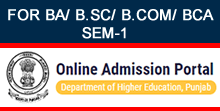
.gif)